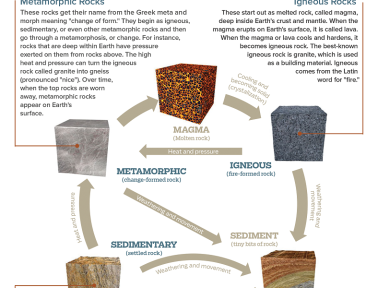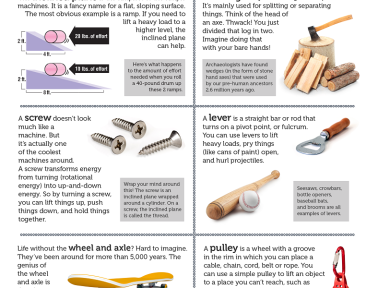My grandmother had an extremely green thumb.As my grandfather labored away at getting alfalfa areas to expand and also cows to give milk in a high desert climate, she turned their front backyard into an explosion of shade and also fragrance. There were intense The golden state poppies, fragile bleeding heart bushes, a massive swath of daisies, roses that were fuller and also brighter than anything at the shop, remarkable 4 o’clocks, little purple wimps (which she loved to sing concerning), as well as my favorites: the lilac and snowball bushes.
Remaining in Grandma’s garden was impressive. In her continuous dress-plus-apron uniform, bordered by sagebrush as well as dirt, she made a growing oasis. It certainly took a lot of work, which is why we knew as children that you definitely had to ask Grandmother very first prior to cutting flowers in her yard.
It was a stimulating advantage to walk through Grandma’s yard, scissors in hand, depended go out by yourself to produce a bouquet from her gold mine. I loved it! I would reduce my favorite blossoms and also slip them into a mason container filled with water, prepared to present to my mommy or a favorite teacher.
As I wandered through Grandmother’s garden, I could not aid however discover the juxtaposition of little buds next to enormous blooms. Childhood interest typically got the better of me, as well as I usually plucked 1 or 2 (or three or 4 …) buds to carefully peel off, layer by layer, attempting to compel open the blossom.
The outcomes of this experiment were constantly the same. One withered, wrinkly, as well as severely harmed flower after one more. Grandma ultimately observed my routine, and mentioned that the buds I forced open would certainly never ever become the blooms they were predestined to become. I had actually interrupted them in their period of development, and quit them from doing what they were meant to do, in the period they were meant to do it.
It was a lesson in blossoms as a kid, but as you can probably think, it implies much more to me now.
It’s interesting to me that Friedrich Froebel came down on the term “kindergarten” or essentially, “kid’s yard”, as the name for his vision of early education. If we think of the early understanding duration in the context of a yard allegory, some vital understandings come to be extremely noticeable.
Equally as Grandmother’s blossoms grew in a predictable order (origins, stems, leaves, buds, blooms), so as well youngsters’s growth and also finding out occurs in a predictable pattern. The blossom of reading is preceded by phonological recognition, language growth, print recognition, and lots of other vital pre-reading skills. The blossom of independent toileting skill is preceeded by self-awareness, electric motor abilities, freedom, as well as step-by-step understanding. Every significant skill is come before by the advancement of smaller sized, fundamental skills.
Yet even if there is a foreseeable pattern to development, and a predictable season for blooming, does not mean that every blossom on the plant will certainly bloom on the very same day. Each blossom opens up at its own price within the expanding season. For a blossom, the period for flowering might be a matter of weeks or months. In child advancement, some periods may even last a few years.
Reading, for example, has an all-natural blooming season between roughly 4 years of ages and 7 years of ages. Like a long-blooming plant, some children flower slightly earlier and some somewhat later and also many at every factor in between. As complicated as it could be to some, this multi-year span is significantly typical.
But visualize compeling every bud open on the specific same day due to a somewhat arbitrary choice that all blossoms must flower specifically then. We’re left with more injury than assistance. It’s the defeated child matching of a withered, wrinkly, forced flower. We interrupted them in their period of growth, and also stopped them from doing what they were indicated to do, when they were suggested to do it. Stress and anxiety, comparison, and competition motivated us to compel open the flower as opposed to nourish the origins and also stems, constructing the critical, foundational skills when they were needed.
Youngsters need to be enabled to bloom in season, equally as blossoms are. This doesn’t suggest we not do anything nonetheless. There’s a large distinction in between feeding the plant as well as requiring the blossom.
Equally as my grandmother took a piece of the desert landscape and also loaded it with rich soil, ample water, as well as favorable nutrients, we must give youngsters encouraging “nutrient-dense” settings where they can thrive as well. Environments rich in print, discussion, experience, play, nature, healthy and balanced relationships, and chances for link aid kids flourish and flower in season.
If a plant is provided the right atmosphere, and also reveals development appropriate to the period, there’s no demand for the anxiousness that afflicts the stewards of kids. Certainly, there are times for extra care: extra nourishment, sanctuary from an early frost, laying for support. Furthermore, kids might need specialized assistance as well as attention while constructing abilities, yet we have to constantly recognize the proper order and period and not compel or cut back beyond where they are supported.
It can be difficult to trust in these long windows of normal growth, to not get caught up in the rush and the pressure that prevails today. However when we trust the growing season, and also nourish the process, the flowers are spectacular, even in– no, particularly in– all their range.
I’ve seen it for myself, significantly close to house.
I saw, stunned, as one of my kids start reading instead spontaneously at around 4 years of age. He went into kindergarten as a proficient viewers. I hadn’t “done” anything, I firmly insisted to close friends. He was just a product of his genetics and his atmosphere. His bro, nevertheless, with the same pool of genetics as well as (essentially) the same setting, ended up being proficient closer to 7, pressing 8.
I ‘d be lying if I stated I never ever fretted. It was so different from our first experience. Luckily, he was never ever labeled as sluggish or behind as well as was revealing all the proper indicators of progressing with the abilities in order and in period (origins-strong, stems-check, leaves-great, buds-visible). And so I held on to what I understood to be real around advancement and just kept offering the exact same nutrient-dense atmosphere.
When the button turned for him, it flipped hard. This little man went from labored analysis to voracious analysis. I have actually caught him with his analysis light on at 3am, tearing through the alluring phases of his latest book. I have actually paid attention to my other half on the various other end of the phone while I’m away on a talking job state, ” Come speak with your mom. Take down your book for a second. Just for a second. Come talk with your Mama. PUT DOWN YOUR PUBLICATION AND COME TALK WITH YOUR MOM!”And also while I could perhaps feel slighted by the truth that Origami Yoda is much more enticing than his own mama, I can’t help but be delighted that he’s completely immersed in reading.
These two visitors now pass chapter books to and fro, both really brilliant, excellent readers. Each having actually bloomed in his very own period. Their more youthful brother has actually currently bumped our tally approximately 3, blooming in season in his own way, right between the two outliers.
We have to pester them concerning getting the books in their rooms. Some nights we ask them to take down guides as well as end up the lights. As well as a few of our most significant melt-downs have actually erupted when it was introduced that the late bedtime did not leave adequate time for my spouse to read out loud from Harry Potter.
I dislike to consider what their perspectives towards reading might have remained in a various expanding setting. One where blossoms were required open. Where comparison created them to wither. Where significant proficiency experiences were traded for arbitrary drills and high-pressure standards. Where regular progress was deemed insufficient as a result of an unnaturally shortened growing period.










